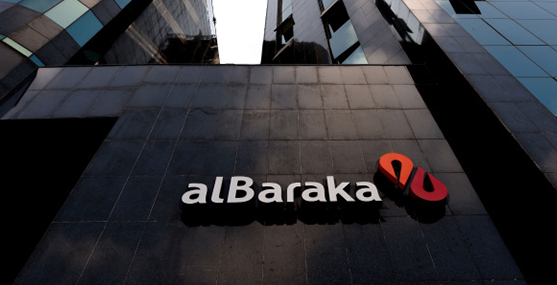
Beit alBaraka
You can own or build your dream home at competitive terms.

The mode of financing are: MOURABAHA, MOUDARABA, MOUCHARAKA & IJARAH
Murabaha is a financing arrangement whereby the bank agrees to purchase an asset at the request of the customer. The bank takes legal possession of the asset that is then sold to the customer at an agreed sale price consisting of the amount of financing plus the profit margin. It is a cost plus transaction.
Responsibility Of The Parties
Murabaha Sale is divided into two types:
The mode of Murabaha sale connected to a promise is used by the Islamic banks which undertake the purchase of commodities according to the specifications requested by the customer and then resell them on Murabaha to the one who promised to buy for its cost price plus a margin of profit agreed upon previously by the two parties.
Responsibility of the parties:
The bank buys the asset from the supplier for P The customer then buys the asset from the bank at a marked up price (P+X); which is payable on a deffered payment basis.
The period covering the defereed payment is affectively the period of financing
The title to the assets is transferred to the customer at the time of purchase buy usually the bank requires its customers to pay an amount as an initial advance in order to secure the safe of the Murabaha asset to the customer (Hamish gedyyah). Hamish gedyyah (security from customer) is presented as an obligation by the customer in the financial statements.
Mudarabah is an Islamic mode of financing between the bank, providing a specified amount of capital, and the Mudarib, providing management for carrying out the venture, trade or service with a view to earning profit. It is a special kind of partnership where one partner gives money to another for investing it in a commercial enterprise. The former is called Rabb - ul - mal and the latter is called Mudarib.
Thus, Mudaraba is a contract between those who have capital and those who have expertise, where the first party provides capital and the other party provides the expertise with the purpose of earning Halal (lawful) profit which will be shared in a mutually agreed upon proportion. This type of business venture serves the interest of the capital owner and the Mudarib (agent).
The capital owner may not have the ability or the experience to run a profitable business. On the other hand, the agent (the Mudarib) may not have adequate capital to invest in a business or project. Therefore, by entering into a contract of Mudarabah each party complements one another, allowing a business venture to be financed.
Musharaka is an Islamic mode of financing in the form of a partnership between the bank and its client whereby each party contributes to the capital of the partnership in equal or varying degrees either to establish a new project or share in an existing project.
The accruing profit is divided between the partners pre-agreed formula, while losses are shared on pro rata basis.
The word Musharakah is derived from the Arabic word Sharikah meaning partnership. Islamic jurists point out that the legality and permissibility of Musharakah is based on the injunctions of the Qur'an, Sunnah, and Ijma (consensus) of the scholars. It may be noted that Shirkah in the Islamic Fiqh is divided into two kinds:
Constant and Diminishing Musharakah:
Musharakah agreement may be entered into for a short-term or long-term period. The capital contributed by the bank in a Musharaka may remain constant throughout the contracted period.
This is referred to as constant Musharakah. Otherwise the bank gradually transfers its share in the Musharaka to the Musharik so as to decrease its share in order to transfer the ownership of the venture to the other party. This is a diminishing Musharakah.
Profits are shared in accordance with the Musharakah agreement. Losses are normally shared in proportion to the capital contributed by each Musharik.
Ijarah is an operating lease whereby the bank will buy and lease out equipment required by the customer for an agreed rental fee. The agreement does not include a promise that the leased asset at the end of the lease term will be transferred to the lessee.
Ijarah is defined in Fiqh as a “possession of a usufruct or benefits for consideration in the Islamic Fiqh. This term is used to denote two things:
Ijarah is divided into two kinds:
Operational Lease
According to this mode, the Islamic bank maintains a number of various assets to respond to the needs of different customers. These assets usually have a high degree of marketability. The bank lets these assets to any party so desirous to utilize for a term to be agreed upon. After the termination of the lease period the assets return to the bank, on its part the bank looks for a new lessee.
The distinguishing feature of this mode is that the assets remain the property of the Islamic bank to put them up for rent every time the Lease period terminates so as not to remain unutilized for long periods of time.
Under this mode the bank bears the risk of recession or diminishing demand for these assets.
The operation lease divides into:
The bank may also enter into a sale and leaseback agreement with the customer whereby the bank will purchase the asset from the customer and leaseback under Ijarah or Ijarah Muntohia Bittamleek arrangement. The accounting implications for the bank will remain the same as for Ijarah / Ijarah Muntohia Bittamleek transactions.
The option for the lessee to acquire the leased asset may be exercised during the tenor of the total lease period or at the end of the lease term as stipulated in the lease agreement. The purchase option is obligatory for the customer (lessee).
Ijarah Muntohia Bittamleek concludes with the legal title in the leased asset being passed to the lessee. This includes the following types:
Ijarah and Ijarah Muntohia Bittamleek contracts have three major elements:

You can own or build your dream home at competitive terms.

With " Tas'helaat ALBaraka" you have the opportunity to finance all your personal expenses such as marriage, traveling, buying new furniture or renovating your home.

"AlBaraka Mihnati “is the first Islamic program of its kind directed toward Small and Medium Enterprises (SMEs).

AlBaraka Zafaf is a financing program that targets couples wishing to live their wedding dream.
